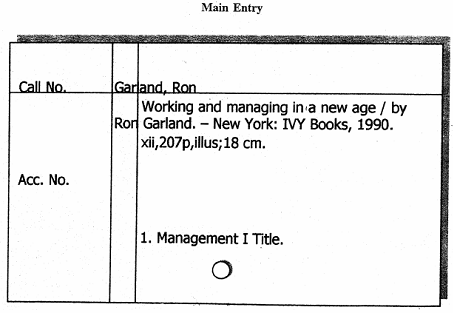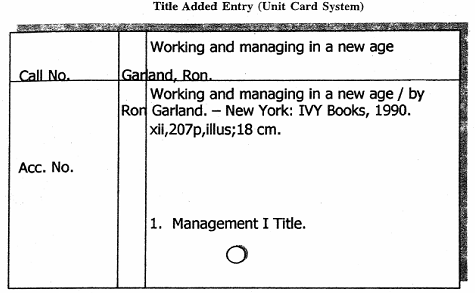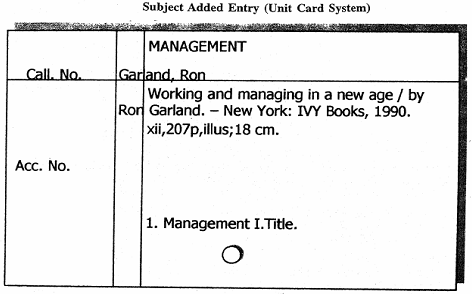Unit Card System
In an added entry we may record all the information that we have recorded in the Main Entry. Or, we may prefer to be brief in 4.2 Unit Card our description since full description is provided in the Main Entry and the user can refer to it if he wants to know the full details of the document.
When we prepare entries manually handwritten or by typewriter we may prefer giving brief information in the added entries to save time and labour.
With the aid of printing, duplicating mechanically by photo copying methods, an exact replica of the Main Entry can be produced.
In what is known as 'Unit Card' or 'Unit Record System', the Main Entry and the added entries carry the same information about the document. The only difference between them is that each added entry will have the approach element at the top of the entry starting from the second indention. In such cases the Main Entry is known as 'Unit Entry'.
We may note here the current thinking on the Unit Record System and the Main Entry. Once every entry for all possible access points of a document carries full description, there may not be any need to call any one of the entries as Main Entry. Bhodan S. Wynar observes "many people believe that when multiple access points are readily available, and when the bibliographic description is complete by itself, there is no need to designate one, of the access points as the "main" one. This concept may then disappear in future codes".
The entries in Unit Card System appear as:



When the information given in the added entry is brief, the above subject heading which is added to the entry looks like the one below:

Note that in this type of brief added entry, only the Call Number, author, title and year of publication are given. Sometimes even the year is omitted. The main line is now occupied by the added entry element but this element starts from the second indention, which indicates that the entry is not a main entry.